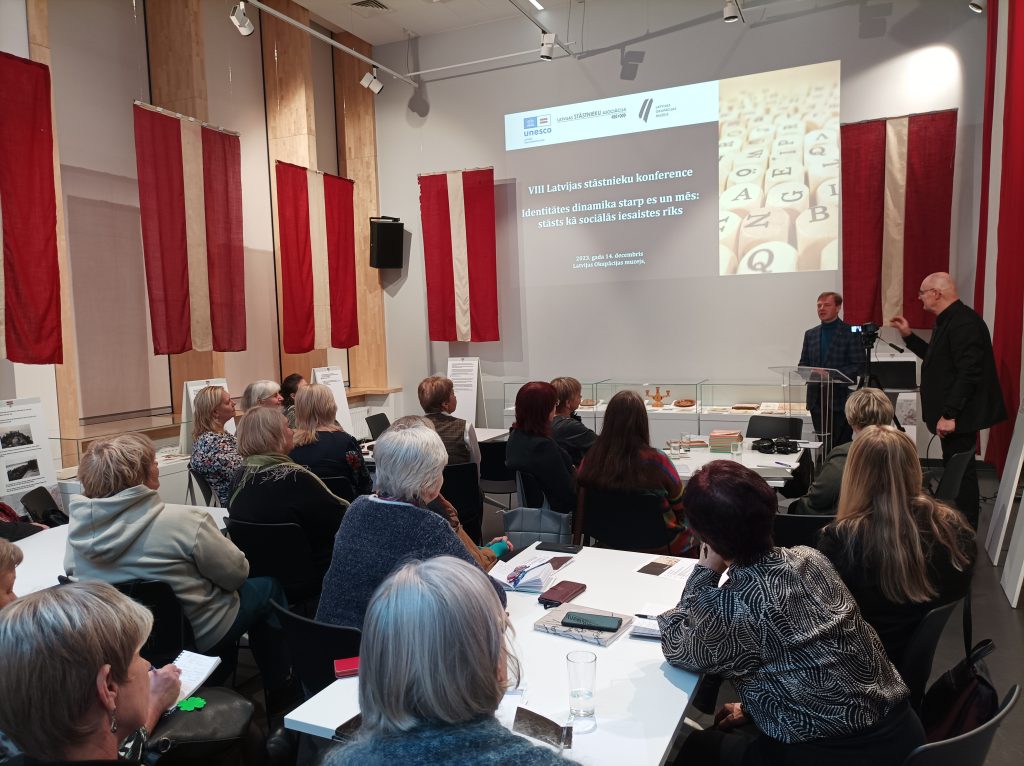
At the Museum of occupation of Latvia, storytellers and supporters of the narrator movement gathered on December 14 for the VIII Latvian narrator Conference “Dynamics of identity between me and us: story as a tool for social engagement '. The focus chosen by the conference was first and last name stories that addressed each participant in person because each of us has both a first and last name, but do each of us have a story about it?
This year marks the 20 th anniversary of the adoption of the UNESCO Convention for the Conservation of intangible cultural Heritage, which stresses that not only are the things and places we can see and touch valuable and preserved, but also what we can experience on a daily basis - songs, stories, traditions, celebrations, language - are an important part of the cultural heritage; it is an intangible or living cultural heritage.
As the intangible heritage is brought to life by the Community practising and passing it on, the aim of the conference was to encourage participation in the identification and enrichment of their cultural space by promoting dialogue among Community members - using the narrative as a tool.
Telling the stories of places, things and people, every local Community from different angles expresses, articulates, creates, strengthens and transforms their identity while creating and enriching their own cultural space. Story, storytelling is an opportunity for creative self-expression, which at the same time is fostering intergenerational communication and understanding, identifying shared values and strengthening the Community.
In the opening part of the conference, the socialanthropologist Klavs Sedlenieks explained how society forms through words and stories. Mara Mellene, a Member of the board of the Latvian storytellers Association, shared the experience of the LIVIND pilot project with partners in Valmiera municipality – Agita Lapsa and Gunta Dallecka – collecting first and last names stories in Valmiera municipality. More broadly HERE.
Participants of the conference continued to introduce how stories can strengthen and consolidate communities in different cultural premises of Latvia. Ayah Whitman, from the Catlahill narrator Community, spoke about Community engagement, creating an annual rally and compiling themed stories in Catlahill's story books. Vilhelmine Yakimova and Sigita Trump from the Preili main Library presented the experience of preparing the festivals of narrators dedicated to Latgale cultural space and positions, as well as other narrative initiatives in Preili municipality. More broadly HERE.
Ina Celitans, head of the folklore cluster “Korava,” explained how it was possible to establish international cooperation with the involvement of the municipality and Community. Artist Dace Liepa, for her part, shared her experience of how it is possible for an entrant to engage and bring the Community to life by sharing her experience of hosting storytelling events in the North Midlands.
In the second part of the conference, Aelita Ramans, a Member of the board of the Latvian narrator Association, presented the Latvian narrator Association's 2024 work plan and plans. An insight into the collection of video testimonies of the Museum of occupation of Latvia, in which both first and last names and life stories can be found, was provided by Evita Feldentals, keeper of the Audiovisual collection of the Museum of the Occupation of Latvia
The conference was organised by the Latvian narrator Association, the UNESCO Latvian national Commission in cooperation with the Latvian national cultural Centre and the Museum of the Occupation of Latvia.
